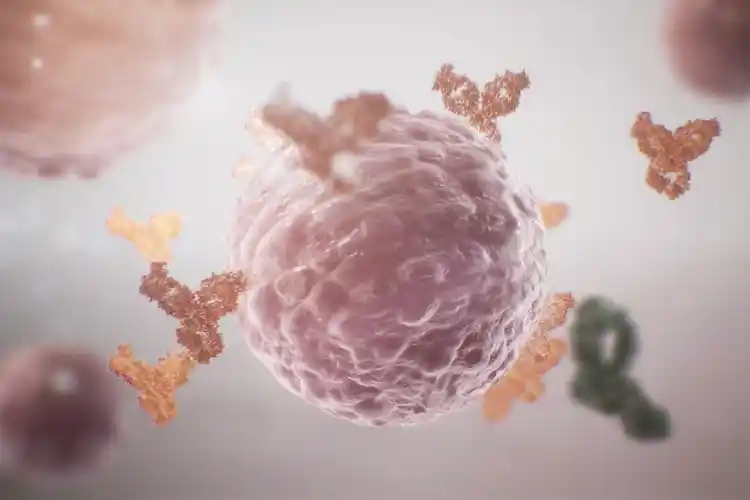What Are Anti-Drug Antibodies?

Hide Video Transcript
Video Transcript
SPEAKER: For chronic inflammatory diseases like rheumatoid arthritis, there are many different treatment options that can help lessen symptoms.
One class of drugs, called biologics, are proteins produced by living organisms like bacteria, yeast, or animal cells.
Due to their large size and complex structure, the immune system may identify these proteins as foreign invaders. This can trigger an unwanted immune response inside the body.
When this happens, a type of white blood cell called B cells become activated and produce Anti-Drug Antibodies or ADAs.
These antibodies bind to the biologics and reduce or completely deactivate the therapeutic effects.
In people with rheumatoid arthritis, ADAs were shown to lower the effectiveness of biologics, requiring higher doses or alternative therapies.
ADAs can also cause allergic reactions and rare but serious autoimmune reactions.
A newer type of drug called JAK inhibitors may be a good option for people whose symptoms do not improve with biologics.
These inhibitors are much smaller and work from within the cell to block enzymes that initiate the inflammatory process.
They do not provoke a reaction from the immune system, which prevents ADAs from activating and may lead to a more effective treatment.
One class of drugs, called biologics, are proteins produced by living organisms like bacteria, yeast, or animal cells.
Due to their large size and complex structure, the immune system may identify these proteins as foreign invaders. This can trigger an unwanted immune response inside the body.
When this happens, a type of white blood cell called B cells become activated and produce Anti-Drug Antibodies or ADAs.
These antibodies bind to the biologics and reduce or completely deactivate the therapeutic effects.
In people with rheumatoid arthritis, ADAs were shown to lower the effectiveness of biologics, requiring higher doses or alternative therapies.
ADAs can also cause allergic reactions and rare but serious autoimmune reactions.
A newer type of drug called JAK inhibitors may be a good option for people whose symptoms do not improve with biologics.
These inhibitors are much smaller and work from within the cell to block enzymes that initiate the inflammatory process.
They do not provoke a reaction from the immune system, which prevents ADAs from activating and may lead to a more effective treatment.
